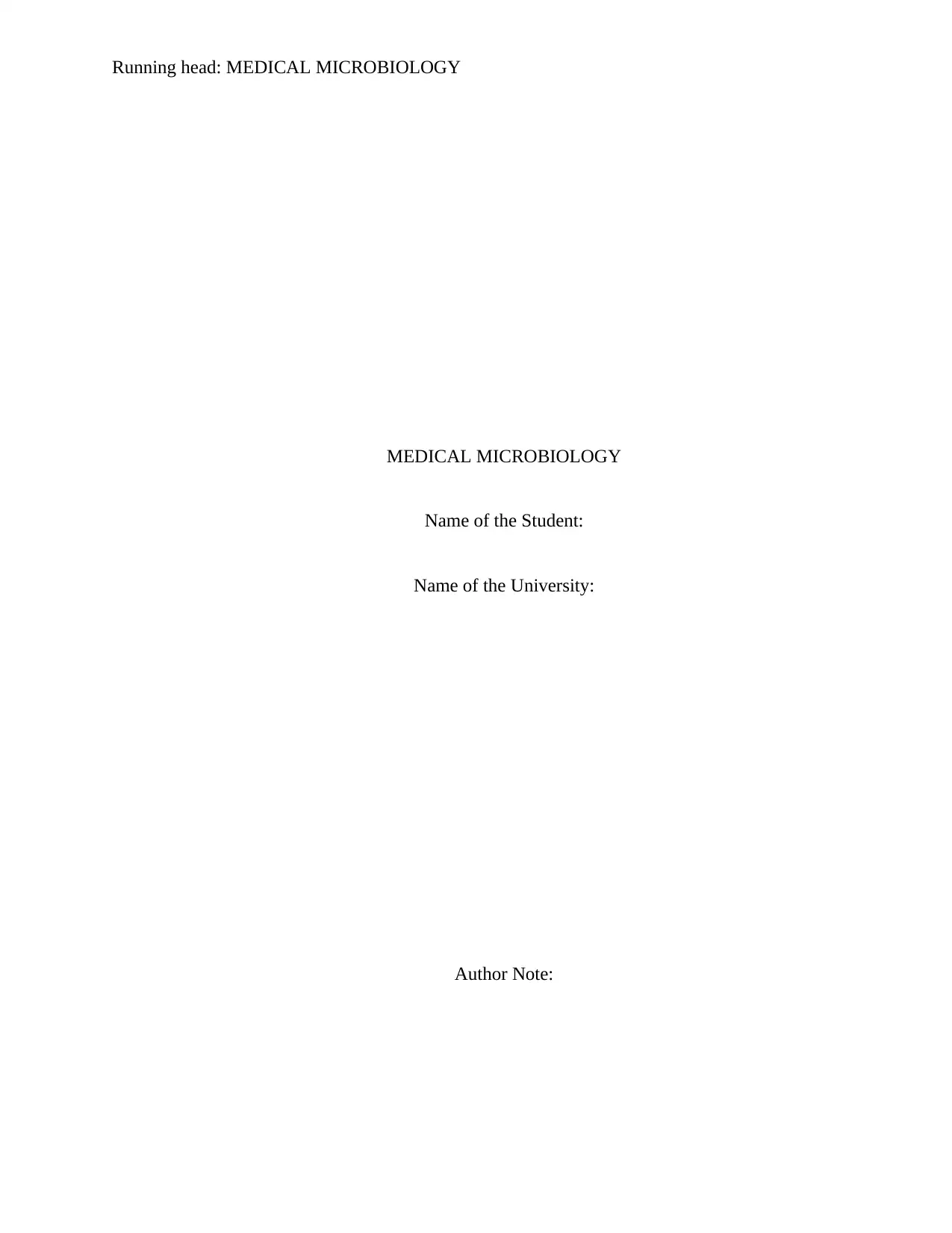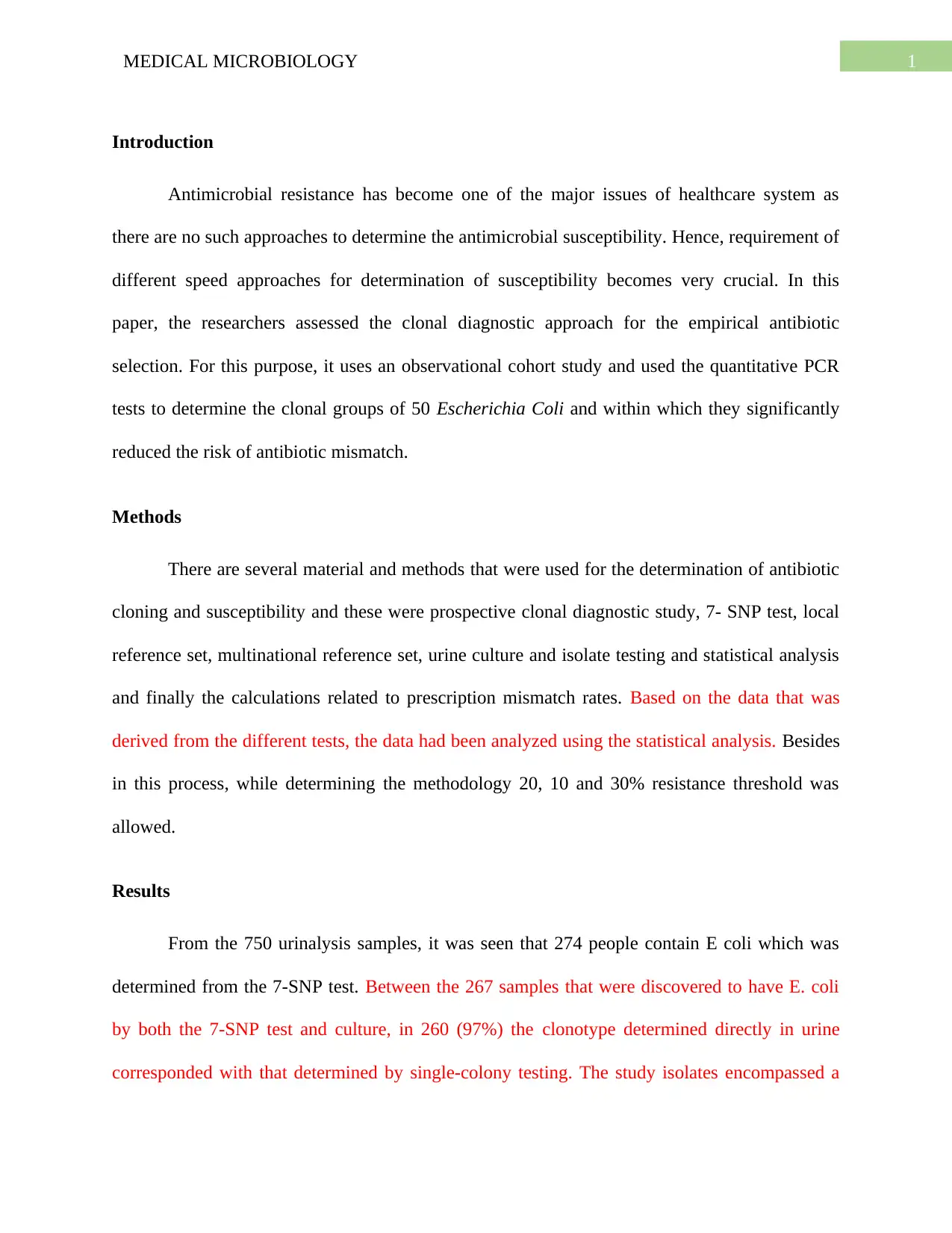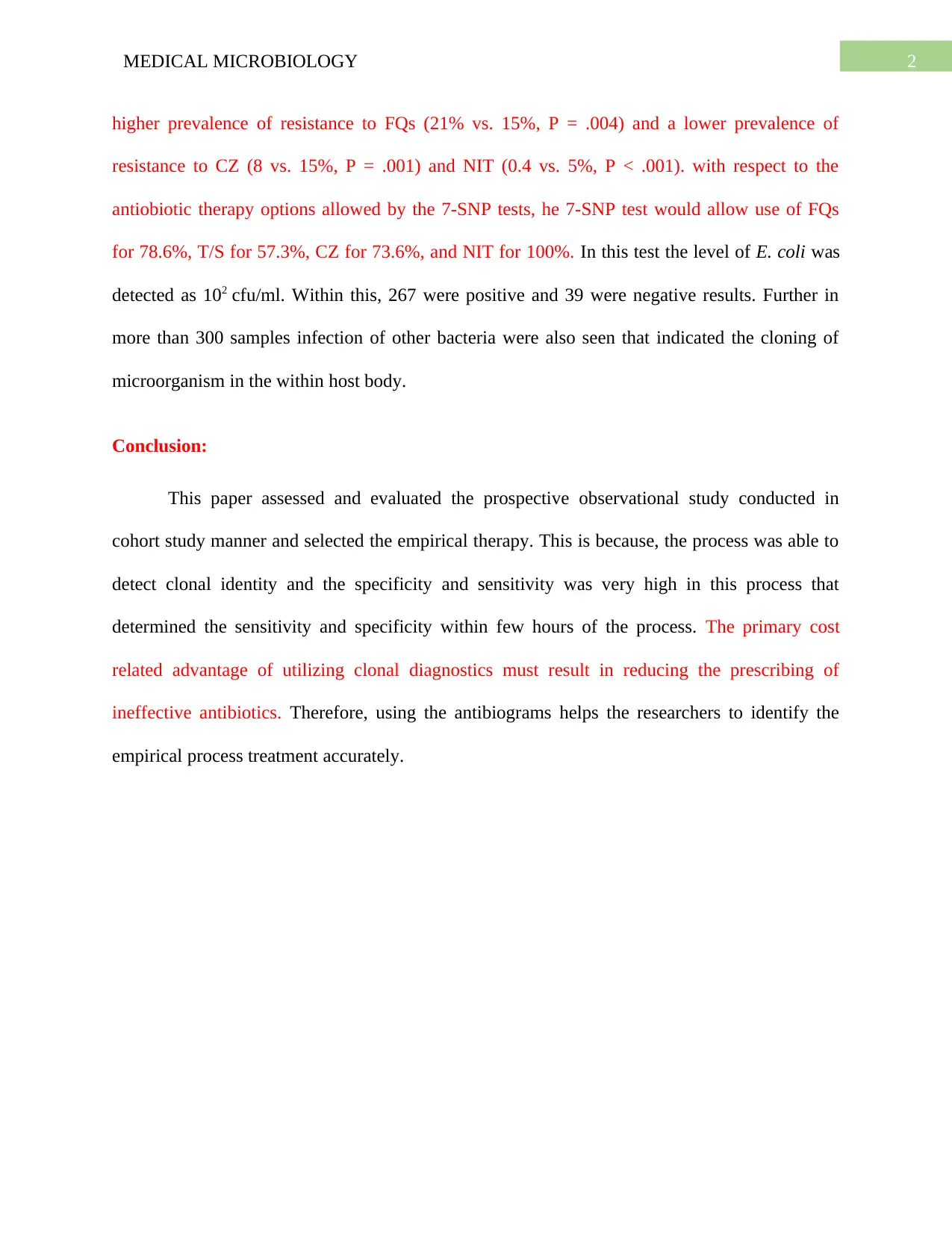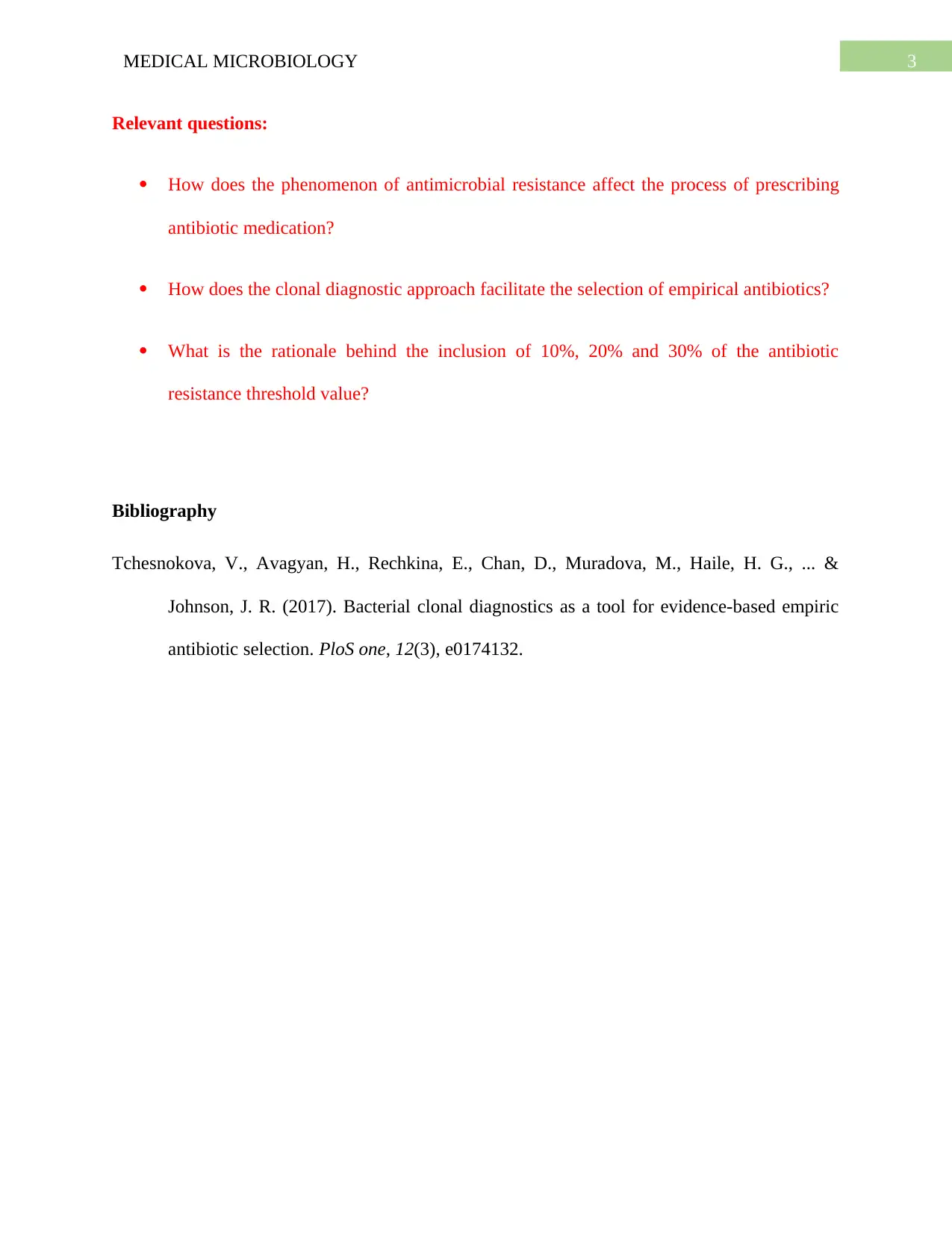Medical Microbiology Report: Antibiotic Selection and Resistance Study
VerifiedAdded on 2023/06/03
|4
|637
|108
Report
AI Summary
This report analyzes a research article on bacterial clonal diagnostics as a tool for evidence-based empirical antibiotic selection. The study investigates the impact of antimicrobial resistance on antibiotic prescription and explores the use of clonal diagnostic approaches, specifically the 7-SNP test, to facilitate the selection of effective antibiotics. The research utilizes an observational cohort study with quantitative PCR tests to determine clonal groups of Escherichia coli and assess the reduction in antibiotic mismatch risk. The methodology includes various tests and statistical analyses, incorporating resistance thresholds. The results highlight the prevalence of resistance to different antibiotics and demonstrate the potential of clonal diagnostics to improve antibiotic therapy choices, including the ability to quickly determine clonal identity. The study concludes that using antibiograms and clonal diagnostics helps in the identification of empirical treatment accurately and cost-effectively, by reducing the prescribing of ineffective antibiotics.
1 out of 4





![[object Object]](/_next/static/media/star-bottom.7253800d.svg)